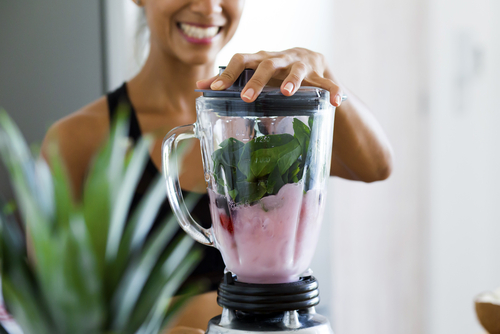Diet Tips During All-on-4 Recovery
The food you eat after having all-on-4 implant surgery will have a significant impact on the quality of your recovery as well as the healing time of your wound. As you’ll be taking antibiotics and pain relievers, choosing the right diet can prevent further complications such as discomfort, inflammation, and boost the protein your gums require to heal.
In the following blog, Bonsall dental experts share valuable diet tips during your All-on-4 recovery, focusing on the foods that promote healing and those that should be avoided to minimize the possibility of negative outcomes. By following these guidelines, you’ll be on track for a smooth and comfortable recovery, paving the way to a bright, confident smile.
What should I eat in the first two weeks?
You will be on a liquid diet for the first three months following the procedure. The most common symptoms are soreness in the mouth, jaw, and throat during this time. Even though the pain or swelling may have subsided by this point, it may still be difficult to eat. This is why you need a liquid diet, which eliminates the need to chew and alleviates some of the discomfort. However, liquid consumption alone requires proper nutrition as well. So, if you want to speed up your recovery, make sure you drink nutrient-rich fluids.
The last thing to keep in mind: it is best to avoid drinking fluids through a straw. Despite the temptation to do so, sucking triggers blood clots to loosen, which causes more bleeding. And it’s no surprise that the healing process is slower for wounds that bleed.
Based on everything said, here are some food items you may eat after All-on-4 implants procedure:
- Water
- Meal replacement shakes
- Protein shakes and smoothies
- Milk, tea, coffee, fresh juices and yogurt
- Broth
- Custard
- Ice cream
- Vegetable or cream soup
What can I eat after this period?
In the second half of your recovery period, it will be possible for you to switch to a soft food diet. You will no longer have any soreness during this time, as the healing process will begin to take place. You can gradually introduce solid food back into your diet, keeping soft food as a priority. Eat food items that require no chewing and can be eaten with a spoon. A few examples are given below:
- Potato mash (or any other type of vegetable mash)
- Oatmeal
- Polenta
- Soft bread
- Soft tofu
- Eggs
- Cheese
- Hummus as well as other creams
What shouldn’t I eat?
During your recovery, it’s essential to avoid certain foods that could hinder your healing process or cause damage to your dental implants.
- Hard foods: Avoid hard or crunchy foods such as nuts, hard candies, raw vegetables, ice, chips, etc., that require significant chewing force, as they could put undue pressure on your implants.
- Sticky foods: Sticky or chewy foods like dried fruit, gum, and caramels can put stress on your implants, potentially causing damage or displacement:
- Spicy foods: Spicy or highly seasoned foods may irritate your surgical sites, leading to discomfort and potentially slowing down the healing process.
- Hot foods and beverages: Extremely hot foods or beverages could cause pain or soreness in the surgical area. Allow your meals and drinks to cool down to a comfortable temperature before consuming them.
- Alcohol and tobacco: Avoid alcohol and tobacco use during your recovery, as both can impede healing and increase the risk of complications.
What Bonsall experts offer all-in-4 procedures?
With Temecula Dental Oral Surgery, you can set up a consultation with Doctor Tsvetov and learn how to eat right during the recovery process, as well as many other postoperative tips and implants maintenance tools.
No matter your age, he’ll provide you with appropriate tooth replacement options at an affordable price with flexible payment options, which is a great benefit, since dental care is typically not covered by health insurance. So, don’t wait – schedule your appointment today and take the first step toward better oral health.
Comments are closed.



